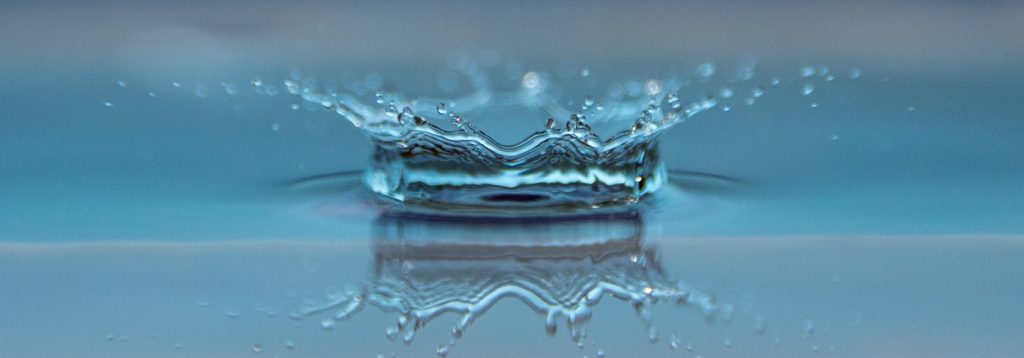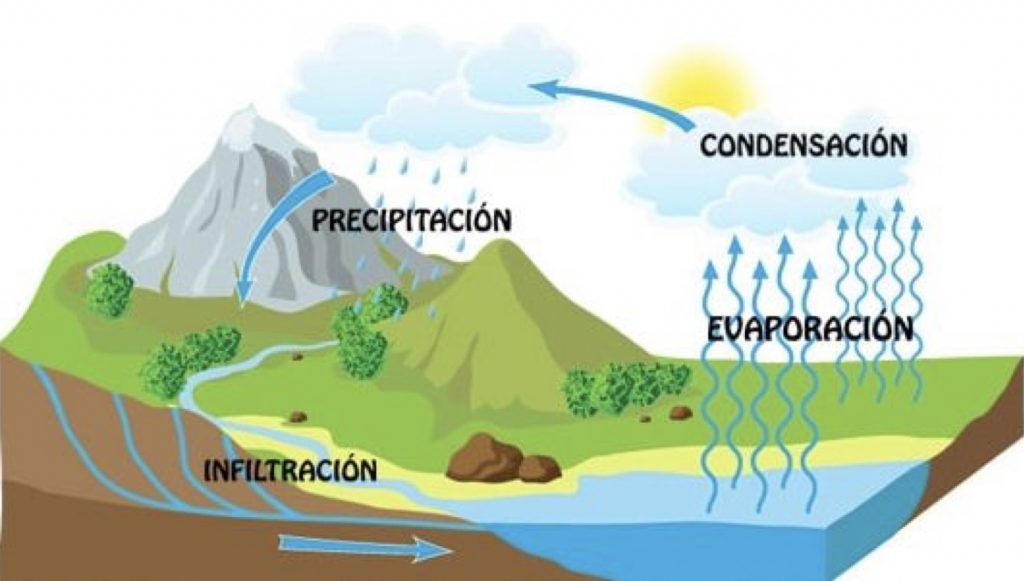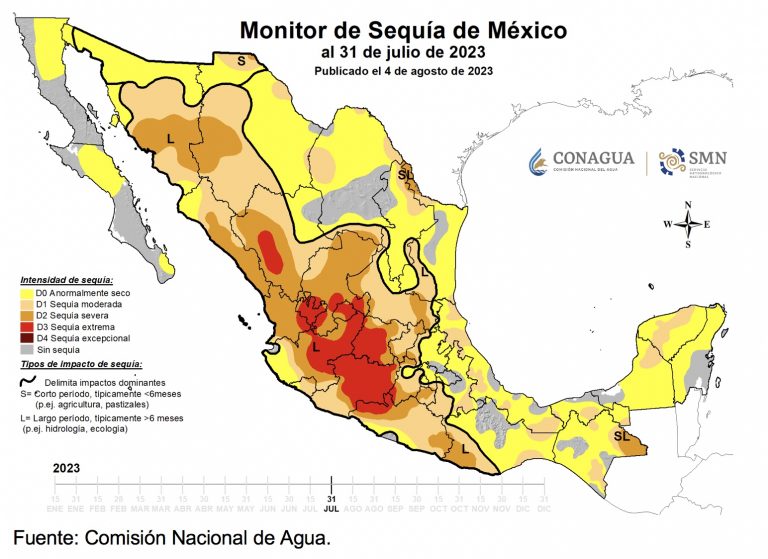
UNIVERSIDAD AUTÓNOMA DE NUEVO LEÓN
SECRETARÍA DE SUSTENTABILIDAD
Water a fundamental resource in life

What is water?… The word water comes from the Latin aqua, they define it as a “transparent, colorless, odorless and tasteless liquid in its pure state, whose molecules are made up of two hydrogen atoms and one oxygen atom, and which constitutes the most abundant component of the Earth's surface and the majority of all living organisms” (Royal Academy Spanish, 2023).
It is an essential natural resource for life on Earth, according to various sources “75% of the planet is covered by water, most of it is salty, and approximately 3% is fresh water, but much of it is frozen in glaciers and icebergs.
In its natural cycle, it passes through various natural environments where this vital liquid undergoes a cyclical transformation process, which allows it to maintain its availability in nature; However, due to the great increase in the human population that has occurred in the last century, as well as the important development of the productive activities carried out by this population, the demand for water has increased alarmingly, so it is It is essential to carry out all necessary actions to ensure its care and conservation.

The chemical composition of water is what makes it an essential element for life, due to the multiple benefits that its consumption offers, such as: it regulates body temperature, works as a shock absorber for the joints, keeps the brain hydrated, among others.
On July 28, 2010, the United Nations General Assembly established the right to drinking water and sanitation as a fundamental right for a dignified life; However, to date, millions of people in the world still face lack of access to water daily.
Due to the above, the United Nations 2030 Agenda incorporated universal equitable access and sanitation to water in Sustainable Development Goal 6, in such a way that adequate personal hygiene services are guaranteed, and the recent pandemic caused by COVID-19. 19, highlighted once again the importance that this vital liquid has for health and the prevention of diseases.
On the other hand, drought has become a climatic event that is becoming more and more present in the world year after year, becoming a problem that affects from different areas, and that the decisions made by the authorities in charge of managing the Availability and use of water have not been insufficient, and on most occasions they have failed to achieve the objectives set to mitigate the effects of this climate emergency.

Due to the above, it is necessary that the inhabitants of the world become aware of the seriousness facing the availability of clean water in the world and we must join the actions aimed at carrying out the care and conservation of water, among which are the following:
- Report leaks at home and elsewhere,
- bathe in only 5 minutes,
- avoid throwing oil or grease into the drain,
- reuse soapy water to clean areas of the home or building,
- Turn off the faucet while brushing your teeth, use a glass,
- water the garden once a week, after 8:00 p.m. with reuse water and select plants from the region,
- use environmentally friendly soaps and cleaners,
- defrost food at room temperature, do not use water,
- reduce the consumption of bottled water, prefer reusable cylinders,
- As far as possible, acquire technologies to save water: faucet aerators, efficient showers, efficient cisterns, low-consumption appliances, as well as water recirculators,
- reuse rainwater, among others,
Finally, it is important not to forget that water is not an isolated resource, so its care goes much further than the actions that we can carry out in the work space, home, school, entertainment or others, but rather in natural areas. as in aquatic ecosystems where we must carry out actions that promote their conservation. So let's think twice before misusing water and not wait once again until the point of its depletion.
Bibliographic references:
Gobierno del Estado de Nuevo León. (2023). Consejos prácticos para el cuidado del agua. https://www.nl.gob.mx/campanas/consejos-practicos-para-el-cuidado-del-agua
Fundación Aquae. (2021). ¿Qué es el agua? Tipos, composición y funciones. https://www.fundacionaquae.org/wiki/que-es-el-agua/
Comisión Nacional de agua. (2023). Monitor de Sequía en México (MSM). https://smn.conagua.gob.mx/es/climatologia/monitor-de-sequia/monitor-de-sequia-en-mexico